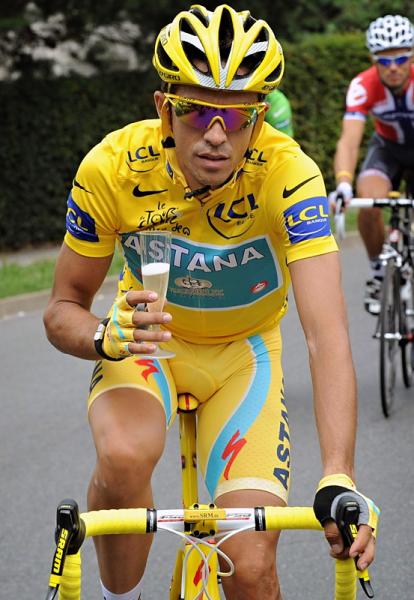Experts poke holes in Contador's contaminated meat defense
German, Canadian anti-doping experts not convinced
The latest race content, interviews, features, reviews and expert buying guides, direct to your inbox!
You are now subscribed
Your newsletter sign-up was successful

Two anti-doping experts have given Tour de France winner Alberto Contador little hope that his argument that contaminated meat was the cause of his Clenbuterol positive will be accepted. The substance was detected at low levels in a sample taken from the Spaniard during the Tour's second rest day, and he has been suspended by the UCI pending the outcome of an investigation. He stands to lose his third Tour title and be suspended from competition.
Detlef Thieme, director of the Institute of Doping Analysis and biochemistry in Kreischa, Germany said that Contador's case bears little comparison to that of table tennis player Dimitrij Ovcharov, who was cleared of a Clenbuterol doping offense after succesfully arguing the positive resulted from contaminated food.
Thieme told the dpa that the case of Ovcharov, who tested positive after a table tennis tournament in China, was different from Contador's because the German-Ukrainian was able to prove that other people who ate the same food in China also showed traces of Clenbuterol and a hair test looking for historical traces of the drug in the athlete's system proved negative.
None of Contador's teammates, who shared in a special meal during the Tour which included beef brought in from Spain, were tested.
Thieme said that "thousands of tests" have shown no traces of the drug in Spanish beef.
Part of Contador's defense was that the level of the drug in his sample was so low it couldn't be considered performance-enhancing, but Canadian researcher Christiane Ayotte of the WADA-accredited testing lab in Montreal disagreed. She told ESPN that even miniscule amounts of the drug can be used for doping purposes.
"You'll never find a ton of it, because the doses are really small," Ayotte said, adding that her lab frequently finds similarly low levels of the drug in athletes' samples.
The latest race content, interviews, features, reviews and expert buying guides, direct to your inbox!
"It's used in sports where they need to cut weight," she said. "Just because it's small doesn't mean it's not doping. ... This is just the dopers adjusting, or misadjusting, to the testing."
Ayotte hopes that regulations will continue to allow adverse analytical findings for any amount of the drug, and that no lower limit will be set for its detection.
"We can't link content in urine to performance, because we don't know the time, the mode of administration or the dose," she said. "If this case is lost because they're concluding the amount is too small, that would be a major problem. It's not the end of the world, but if competent arbitrators decide that, my heart would break. More dopers would go through the net."

